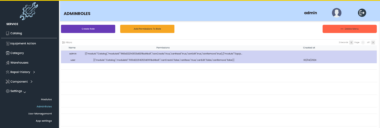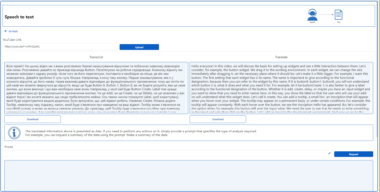Overview of MCP Server for UBOS Asset Marketplace
In the rapidly evolving landscape of artificial intelligence, the MCP Server emerges as a pivotal tool, designed to seamlessly integrate AI models with external data sources and tools. The MCP Server, an open protocol, standardizes the interaction between applications and Large Language Models (LLMs), facilitating a robust bridge for data exchange and interaction. This innovation is particularly relevant for developers and businesses aiming to leverage AI’s full potential in their applications.
Key Features of MCP Server
Agent Framework with Pydantic Integration: MCP Server utilizes Pydantic, a Python agent framework that simplifies the development of production-grade applications with Generative AI. This integration ensures type safety and structured responses, making AI-driven applications more reliable and efficient.
Model-Agnostic Support: The server supports a wide array of models, including OpenAI, Anthropic, Gemini, and more. This flexibility allows developers to choose the best model for their specific needs without being locked into a single provider.
Real-Time Debugging and Monitoring: Through seamless integration with Pydantic Logfire, MCP Server offers real-time debugging and performance monitoring. This feature is crucial for maintaining the integrity and performance of AI applications.
Python-Centric Design: Leveraging Python’s familiar control flow, MCP Server facilitates the application of standard Python best practices, enhancing the development process for AI-driven projects.
Streamed Responses and Graph Support: The server provides streamed LLM outputs with immediate validation, ensuring rapid and accurate outputs. Additionally, Pydantic Graph offers a powerful way to define complex application graphs, preventing the degradation of control flow into spaghetti code.
Use Cases of MCP Server
- AI-Driven Customer Support: By integrating MCP Server, businesses can develop AI agents that handle customer inquiries efficiently, providing real-time support and personalized responses.
- Financial Services: In the finance sector, MCP Server can be used to build AI agents that assist with risk assessment, fraud detection, and customer account management.
- Healthcare Applications: MCP Server enables the development of AI applications that assist healthcare professionals with patient data analysis, diagnosis support, and personalized treatment plans.
- Enterprise Data Integration: MCP Server acts as a bridge between AI models and enterprise data, facilitating the development of custom AI agents tailored to specific business needs.
UBOS Platform Integration
UBOS, a full-stack AI Agent Development Platform, focuses on bringing AI agents to every business department. By integrating MCP Server, UBOS enhances its capability to orchestrate AI agents, connect them with enterprise data, and build custom AI solutions using LLM models and multi-agent systems. This integration empowers businesses to harness AI’s transformative power, driving innovation and efficiency across various sectors.
In conclusion, MCP Server stands as a transformative tool in the AI ecosystem, offering unparalleled flexibility, efficiency, and integration capabilities. Whether you’re a developer or a business leader, MCP Server provides the tools necessary to unlock the full potential of AI in your applications.
PydanticAI
Project Details
- pydantic/pydantic-ai
- @pydantic/mcp-run-python
- MIT License
- Last Updated: 4/18/2025
Recomended MCP Servers

MCP server that visually reviews your agent's design edits

MCP server for analyzing claims, validating sources, and detecting manipulation using multiple epistemological frameworks

Model Context Protocol (MCP) Server for Langfuse Prompt Management. This server allows you to access and manage your...

A Model Context Protocol (MCP) server that provides web search functionality using Perplexity AI's API.
MCP Server for send text/markdown message via dingding (aka dingtalk) group custom robot

MCP Server for IDA Pro
百度地图 MCP Server

A system monitoring tool that exposes system metrics via the Model Context Protocol (MCP). This tool allows LLMs...
 From vibe coding to vibe deployment. UBOS MCP turns ideas into infra with one message.
From vibe coding to vibe deployment. UBOS MCP turns ideas into infra with one message.






